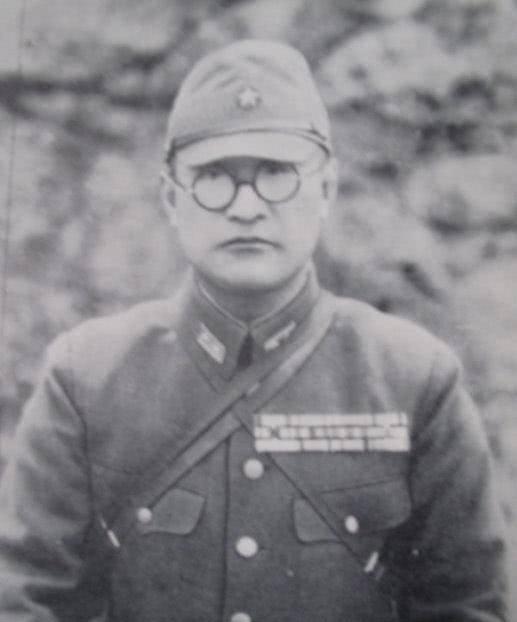Among the generals of the Japanese invasion of China, there is such a figure, he is a descendant of the famous Japanese general Sakai Tadaji in the middle and late period of the Warring States, he graduated from the Japanese Army Non-Commissioned Officer School in his early years, "after the July 7 Incident", he followed the Japanese invading army to fight in China, led his troops to "sweep" the anti-Japanese base areas behind the enemy lines on many occasions, and vigorously promoted the "three lights" policy of killing, burning, and robbing the light.

Sakai Naoji was born on March 26, 1891, after graduating from the Japanese Army Non-Commissioned Officer School, he actively responded to Japan's "foreign expansion policy" at that time, after the outbreak of the Lugou Bridge Incident, Sakai Naoji invaded China as the leader of the 4th Wing of the Guards, and was promoted to major general in 1938, serving as the commander of the 19th Brigade of infantry of the 16th Division of the 35th Army, and then led the troops to implement the Three Lights Policy on many occasions against the anti-Japanese base areas in Jiangsu, Anhui, Zhejiang and other places, and carried out "Jianbi Qingye" operations against the New Fourth Army. He also connived at the rape and murder of women in groups of his subordinates in the occupied areas, committing heinous crimes.
After the Battle of Zhejiang, Sakai was promoted to lieutenant general of the Japanese 15th Division, and then led his troops from Xiaoshan to attack in the direction of Quzhou, with the task of "destroying the aviation base for the use of the Us army in the southeast region." In order to stop the Japanese attack, the 146th Division of the Nationalist Defenders 21st Army sent the 8th Battalion of Independent Engineers, under the cover of infantry, to rush to the east bank of the Lanxi River and set up dozens of mine groups on the way of the Sakai Division to delay the Japanese attack.
Shortly after the sappers had laid out the minefield and retreated, Lieutenant General Naoji Sakai, known as the "vanguard" and "tiger general" of the invasion of China, also attacked the areas of Majian and other areas north of Lanxi. Suddenly, during the attack, the Japanese army kept stepping on the mines, suffered heavy losses, and was forced to stop advancing, Sakai Naoji was very annoyed, and immediately ordered the engineering wing to send an engineer detachment to search for and remove the mines on the way. After the engineering unit finished its operation, the captain reported to Sakai that all the mines had been cleared, and after listening to the report, Sakai was still not at ease, so he ordered the engineering squad to open the road in front, followed by the infantry detachment, followed by the division headquarters. Along the way, Sakai on horseback was surrounded by Japanese adjutants in the middle of the tight protection, at this time Sakai also thought that he was as safe as if he had entered the safe, so he ordered all the military doctors of the division to be sent to the field bandages.
Just as we reached the three-forked intersection 1,500 meters north of Lanxi, after the sapper squad walking in front of them turned safely and passed, Sakai's mount was impartial and stepped on a mine. Suddenly, only to hear a loud "bang", Sakai and his horse took off, and then they were thrown heavily to the ground, and the war horse was killed on the spot, and Sakai himself, his left foot was also destroyed by the mine, the skin and flesh on his legs were cracked, and the blood flowed continuously. The Japanese officers who saw the division commander being bombed hurried around to find the military doctor, but the military doctors who accompanied the team were all sent to the field bandaging station, and there was not a doctor within a few kilometers of the circle, so they could only send a report for help. However, at this time, Sakai was completely unconscious, and the military doctor continuously injected Sakai with rescue agents and did artificial respiration, all of which had no effect, and when preparing for his blood transfusion, it was too late, and later the Japanese lieutenant general was killed on the spot due to excessive blood loss.
After The death of Naoji Sakai, Major General Ishikawa, who remained in Nanjing of the Japanese army, rushed to Lanxi to deal with the aftermath, he sent people to cremate Sakai's body, leaving only part of his hair, nails and ashes, and tightly blocked the news, until September 27 of the same year, the Japanese army did not announce the news to the public, and said in the history of the war: "The current division commander died, for the first time since the founding of the army." According to the old man Huang Shiwei, who "blew up" the Japanese general, he recalled in his later years: When he learned that there was another Japanese lieutenant general who was killed by a mine in Lanxi that year, he was somewhat "unbelievable" in his heart, because he was only a deputy battalion commander at the time, but he could "blow up" a Japanese general on the battlefield, which was a very rare honor.